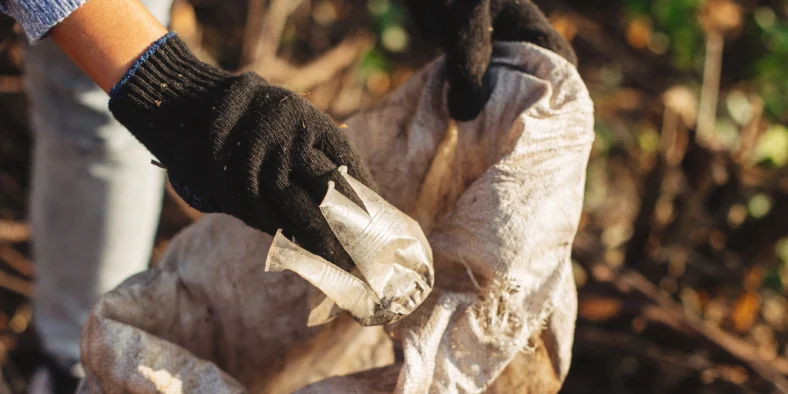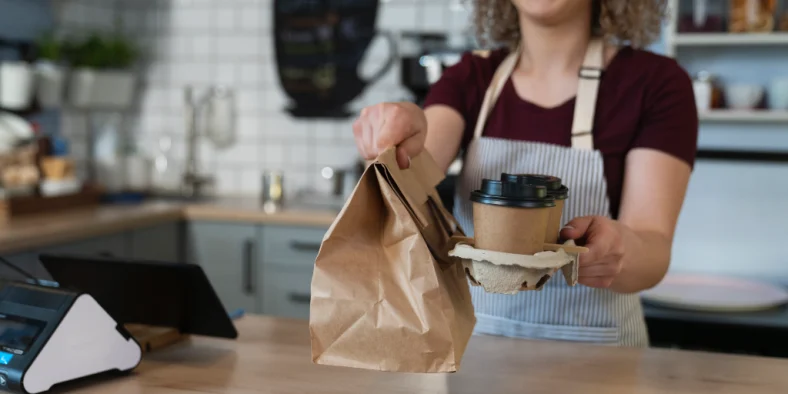Summary:
The single-use plastic ban in England came into force on 1 October 2023 and includes:
- Single-use plastic cutlery
- Single-use plastic plates, bowls and trays (exemptions apply)
- Balloon sticks
- Polystyrene cups
- Polystyrene food containers
Some exemptions apply, such as takeaways and retailers are permitted to use plastic plates, bowls, and trays, either as pre-filled packaging or where filled at the point of sale.
Introduction
The issue of single-use plastic waste has become a global concern, with its detrimental impact on the environment and human health. In response to this pressing issue, the UK government has implemented a Single-Use Plastic Ban in England, aiming to reduce plastic waste and promote sustainable alternatives. This article provides a comprehensive overview of the ban, its scope, exemptions, and its implications for businesses and consumers.
Understanding the Single-Use Plastic Ban

The Single-Use Plastic Ban in England, which came into effect on 1st October 2023, targets specific items commonly found in everyday use. The ban primarily focuses on single-use plastic cutlery, plates, and polystyrene trays. These items have been identified as major contributors to plastic pollution and take hundreds of years to break down in the environment.
Scope of the Ban
The ban applies to various businesses, including shops, takeaways, food vendors, and hospitality establishments. From the implementation date, these businesses are prohibited from selling or providing single-use plastic cutlery, balloon sticks, polystyrene cups, or food containers. This measure aims to encourage the use of sustainable alternatives and reduce the reliance on disposable plastic items and wraps.
Exemptions

There are specific exemptions to the ban on the supply of certain single-use plastic items. Businesses can still supply single-use plastic plates, bowls, and trays if they are being provided to another business or if they serve as packaging, either pre-filled or filled at the point of sale. Additionally, food or drink in polystyrene containers is exempted if it requires further preparation, such as adding water, microwaving, or toasting, before consumption.
This is the snapshot from government guidance and the full text is here (it’s short!)
Environmental Impact and Government’s Vision

Educating consumers about the reasons behind the ban and the importance of sustainable choices is crucial. Businesses can play an active role in raising awareness through clear communication and providing information about sustainable alternatives. Encouraging customers to bring their own containers for takeaways or offering incentives for using reusable products can foster a culture of sustainability.
The Single-Use Plastic Ban in England is a significant step towards addressing the environmental impact of plastic waste. Plastic pollution poses a severe threat to waterways, marine life, and ecosystems. By eliminating single-use plastic items, the government aims to reduce plastic waste and its associated harms. This ban is part of a broader vision to eliminate all avoidable plastic waste by 2042, promoting a more sustainable and circular economy.
Implications for Businesses
The Single-Use Plastic Ban in England has implications for businesses across various sectors. It requires businesses to reassess their packaging and utensil choices and explore sustainable alternatives. Here are some key considerations for businesses:
Awareness and Compliance
Many businesses have expressed a lack of awareness regarding the ban. It is crucial for businesses to stay informed about the regulations and ensure compliance. Familiarising themselves with the banned items and seeking alternatives in advance will help businesses avoid penalties and smoothly transition to sustainable practices.
Sourcing Sustainable Alternatives
To comply with the ban, businesses need to source sustainable alternatives to single-use plastic items. Bamboo or wooden cutlery can replace plastic cutlery for takeaways, reducing environmental impact. Metal cutlery can be used for in-house dining, providing a more durable and eco-friendly option. Reusable or compostable plates and bowls offer sustainable alternatives to plastic ones.
Collaboration with Suppliers
Businesses should collaborate with suppliers to ensure a steady supply of sustainable alternatives. Exploring partnerships with suppliers who offer eco-friendly packaging solutions can help businesses meet the demand for sustainable products. By working together, businesses and suppliers can drive positive change and contribute to a circular economy.
Consumer Education and Communication
Implications for Consumers

The Single-Use Plastic Ban in England also has implications for consumers, who play a vital role in reducing plastic waste. Here are some key considerations for consumers:
Embracing Reusable Options
Consumers can actively participate in the fight against plastic waste by embracing reusable options. Investing in reusable cutlery, water bottles, and food containers can significantly reduce the reliance on single-use plastic items. By making simple changes in their daily routines, consumers can contribute to a greener and more sustainable future.
Supporting Sustainable Businesses
Consumers can choose to support businesses that prioritise sustainability and offer alternatives to single-use plastic. By patronising eco-friendly establishments and brands, consumers can send a clear message that sustainable practices are valued. Supporting such businesses encourages others to adopt sustainable alternatives and accelerates the transition to a plastic-free future.
Being Mindful of Packaging
Consumers can also be mindful of excessive packaging when making purchasing decisions. Opting for products with minimal or recyclable packaging can help reduce plastic waste. Additionally, consumers can actively participate in recycling programs and ensure proper disposal of plastic waste to prevent it from ending up in landfills or oceans.
Conclusion
The implementation of the Single-Use Plastic Ban in England marks a significant step towards mitigating the environmental impact of plastic waste. By targeting specific single-use plastic items, the ban aims to reduce pollution and promote sustainable alternatives. Businesses and consumers must embrace this change, sourcing eco-friendly alternatives and making conscious choices to drive the transition to a circular economy. Together, we can build a future where single-use plastic is no longer the norm, but a thing of the past.
Note: The information provided in this article is based on the available sources and is subject to change. Please refer to official government websites and regulations for the most up-to-date information.



